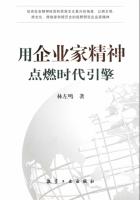Caught between two fires,he had beaten a heroic retreat towards a little dancer,a young girl named Nahenry,who was sixteen like himself,obscure as a cat,and with whom he was in love.
He abounded in memories.
He was accustomed to exclaim:'How pretty she was——that Guimard-Guimardini-Guimardinette,the last time I saw her at Longchamps,her hair curled in sustained sentiments,with her come-and-see of turquoises,her gown of the color of persons newly arrived,and her little agitation muff!'He had worn in his young manhood a waistcoat of Nain-Londrin,which he was fond of talking about effusively.
'I was dressed like a Turk of the Levant Levantin,'said he.
Madame de Boufflers,having seen him by chance when he was twenty,had described him as'a charming fool.'
He was horrified by all the names which he saw in politics and in power,regarding them as vulgar and bourgeois.He read the journals,the newspapers,the gazettes as he said,stifling outbursts of laughter the while.
'Oh!'he said,'what people these are!
Corbiere!
Humann!
Casimir Perier!There's a minister for you!
I can imagine this in a journal:M.Gillenorman,minister!'that would be a farce.
Well!
They are so stupid that it would pass';he merrily called everything by its name,whether decent or indecent,and did not restrain himself in the least before ladies.
He uttered coarse speeches,obscenities,and filth with a certain tranquillity and lack of astonishment which was elegant.It was in keeping with the unceremoniousness of his century.It is to be noted that the age of periphrase in verse was the age of crudities in prose.
His god-father had predicted that he would turn out a man of genius,and had bestowed on him these two significant names:
Luc-Esprit.
BOOK SECOND.——THE GREAT BOURGEOIS
Ⅳ A CENTENARIAN ASPIRANT
He had taken prizes in his boyhood at the College of Moulins,where he was born,and he had been crowned by the hand of the Duc de Nivernais,whom he called the Duc de Nevers.
Neither the Convention,nor the death of Louis XVI.,nor the Napoleon,nor the return of the Bourbons,nor anything else had been able to efface the memory of this crowning.The Duc de Nevers was,in his eyes,the great figure of the century.'What a charming grand seigneur,'he said,'and what a fine air he had with his blue ribbon!'
In the eyes of M.Gillenormand,Catherine the Second had made reparation for the crime of the partition of Poland by purchasing,for three thousand roubles,the secret of the elixir of gold,from Bestucheff.He grew animated on this subject:
'The elixir of gold,'he exclaimed,'the yellow dye of Bestucheff,General Lamotte's drops,in the eighteenth century,——this was the great remedy for the catastrophes of love,the panacea against Venus,at one louis the half-ounce phial.Louis XV.
sent two hundred phials of it to the Pope.'
He would have been greatly irritated and thrown off his balance,had any one told him that the elixir of gold is nothing but the perchloride of iron.M.Gillenormand adored the Bourbons,and had a horror of 1789;he was forever narrating in what manner he had saved himself during the Terror,and how he had been obliged to display a vast deal of gayety and cleverness ins order to escape having his head cut off.If any young man ventured to pronounce an eulogium on the Republic in his presence,he turned purple and grew so angry that he was on the point of swooning.
He sometimes alluded to his ninety years,and said,'I hope that I shall not see ninety-three twice.'On these occasions,he hinted to people that he meant to live to be a hundred.
BOOK SECOND.——THE GREAT BOURGEOIS
Ⅴ BASQUE AND NICOLETTE
He had theories.
Here is one of them:
'When a man is passionately fond of women,and when he has himself a wife for whom he cares but little,who is homely,cross,legitimate,with plenty of rights,perched on the code,and jealous at need,there is but one way of extricating himself from the quandry and of procuring peace,and that is to let his wife control the purse-strings.This abdication sets him free.
Then his wife busies herself,grows passionately fond of handling coin,gets her fingers covered with verdigris in the process,undertakes the education of half-share tenants and the training of farmers,convokes lawyers,presides over notaries,harangues scriveners,visits limbs of the law,follows lawsuits,draws up leases,dictates contracts,feels herself the sovereign,sells,buys,regulates,promises and compromises,binds fast and annuls,yields,concedes and retrocedes,arranges,disarranges,hoards,lavishes;she commits follies,a supreme and personal delight,and that consoles her.
While her husband disdains her,she has the satisfaction of ruining her husband.'This theory M.Gillenormand had himself applied,and it had become his history.
His wife——the second one——had administered his fortune in such a manner that,one fine day,when M.Gillenormand found himself a widower,there remained to him just sufficient to live on,by sinking nearly the whole of it in an annuity of fifteen thousand francs,three-quarters of which would expire with him.He had not hesitated on this point,not being anxious to leave a property behind him.
Besides,he had noticed that patrimonies are subject to adventures,and,for instance,become national property;he had been present at the avatars of consolidated three per cents,and he had no great faith in the Great Book of the Public Debt.'All that's the Rue Quincampois!'he said.
His house in the Rue Filles-du-Clavaire belonged to him,as we have already stated.He had two servants,'a male and a female.'
When a servant entered his establishment,M.Gillenormand re-baptized him.
He bestowed on the men the name of their province:
Nimois,Comtois,Poitevin,Picard.His last valet was a big,foundered,short-winded fellow of fifty-five,who was incapable of running twenty paces;but,as he had been born at Bayonne,M.Gillenormand called him Basque.















